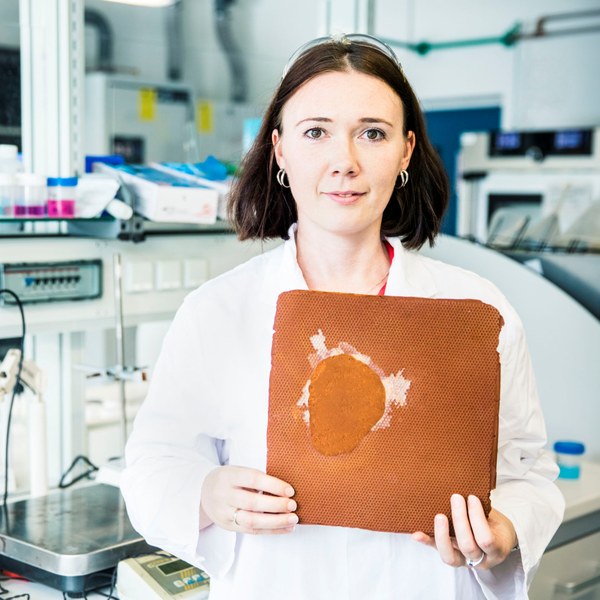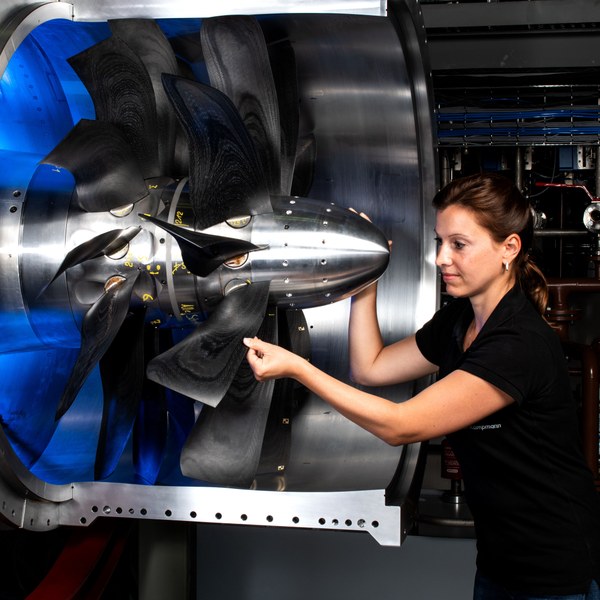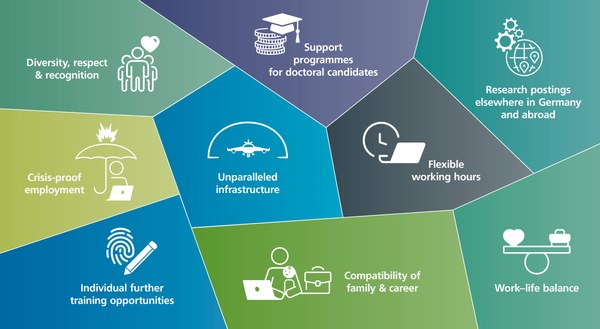Daniel Silberhorn
Field of study: Aerospace engineering
Now: Institute of System Architectures in Aeronautics
Following the completion of his studies in aerospace engineering, Daniel Silberhorn joined the DLR Institute of System Architectures in Aeronautics in Hamburg as a research associate in 2018. Here he conducts research into overall aircraft design and integration. The following interview provides a glimpse into his work.
Daniel, what do you look forward to when coming to work in the morning?
Daniel: When I head to our brightly lit office with a view of the Elbe river in the morning, I mainly look forward to seeing my colleagues and the pleasant working atmosphere. There’s usually a genuine eagerness to collaborate on solutions to the burning aviation research questions.
What are you researching or working on?
Daniel: Essentially, my research revolves around seeking sustainable and cost-effective solutions for aviation. The focus of my applied research is on the aircraft of the future. Initially, we are digitally modelling it end-to-end at a low to medium fidelity level.
„Solutions for sustainable and cost-effective aviation“
Within the framework of our overarching research question, we are examining specific aspects. We are investigating the impact of different energy sources, such as fossil fuels and synthetic kerosene, liquid hydrogen and electric power on our design. Additionally, we are also modelling different propulsion architectures, including gas turbines with fans or propellers, and hybrid applications using fuel cells and/or batteries. A third central aspect involves calculating different aircraft configurations, aiming to achieve the most favourable interaction with energy sources and propulsion systems.
We are also modelling the deployment scenario of the aircraft, targeting the largest possible market share, revenue and the lowest climate impact.
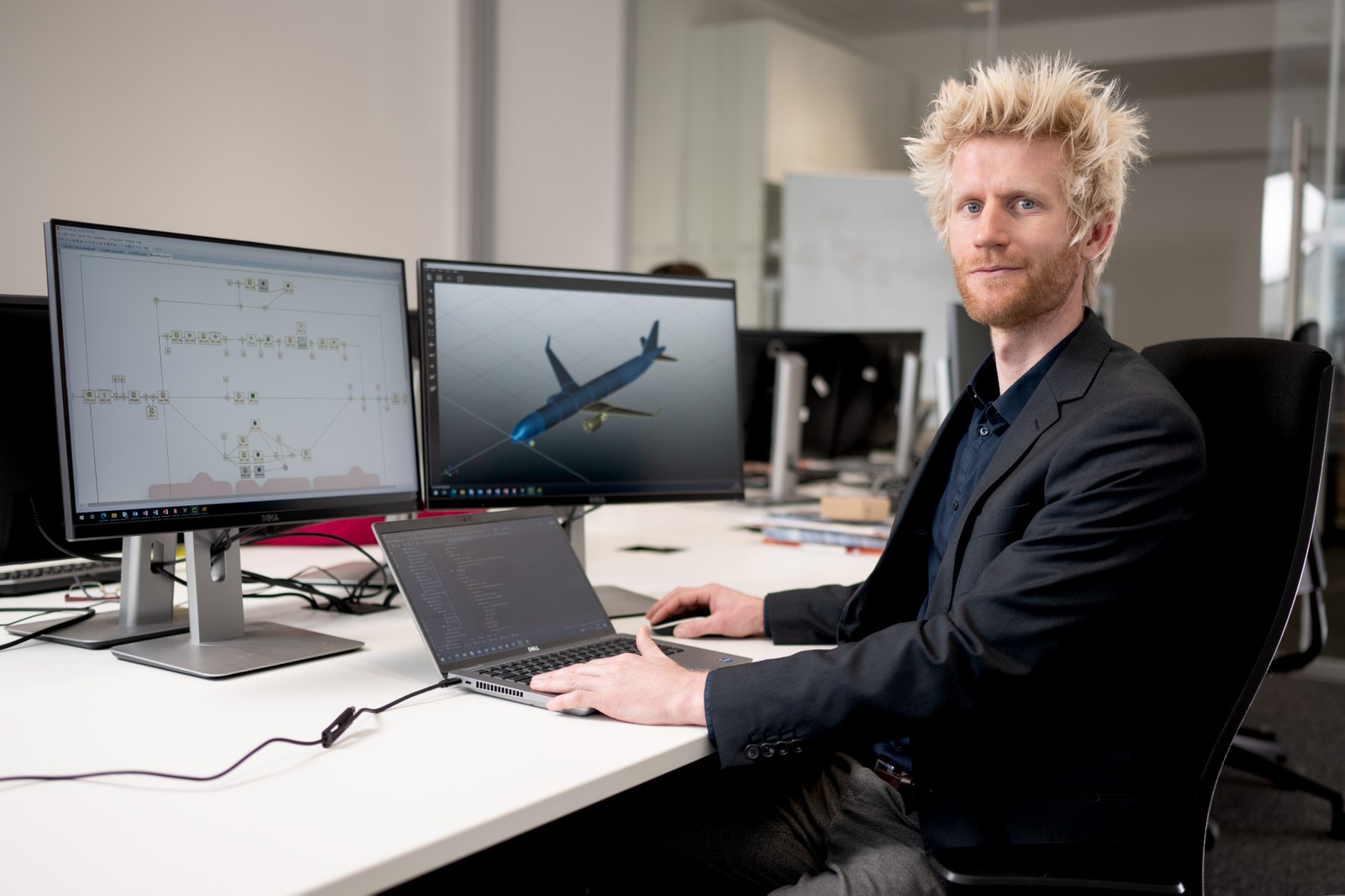
To ensure that our results are even more reliable and that the relevant disciplines are calculated as accurately as possible, we involve technical experts.
In other words, part of my job is to facilitate efficient interaction between the various disciplines, always with the overall aircraft in mind. This enables us to ensure the potential application.
All of this is also reflected in my role as project manager of the EXACT (Exploration of electric aircraft concepts and technologies) and EXACT 2 projects. The aim of the project is to describe and optimise the overall system consisting of the aviation and energy sectors and to evaluate its economic and ecological behaviour.
„Aircraft concepts, their associated energy sources and technology components that significantly mitigate climate impact while remaining economically viable“
What does your typical working day involve?
Daniel: On a typical day, my tasks are divided between working on my laptop and attending work or project meetings. Laptop-related activities primarily involve aircraft design, programming and creating presentations and publications. My meetings with researchers and industry experts vary in scale, spanning from smaller working groups to larger international project meetings. I particularly enjoy working as part of a team and collaborating with colleagues who share my passion for aviation.
Where and how is your work being used?
Daniel: The findings related to aircraft concepts, their associated energy sources and technology components that significantly mitigate climate impact while remaining economically viable hold relevance for both research and industry. In politics, these research results can serve as a robust foundation for decision-making.
„A remarkable team spirit“
What are the highlights of your work?
Daniel: A highlight for me is realising the collaborative potential across different disciplines. This typically fosters a remarkable team spirit. It's a great feeling when, after years of joint, cross-disciplinary research, we can come up with new insights that can only be achieved through collective effort. I’m particularly impressed by our contribution to the comprehensive knowledge that has evolved over generations at DLR.
I also enjoy presenting our research findings at national and international conferences and engaging in discussion with expert audiences.
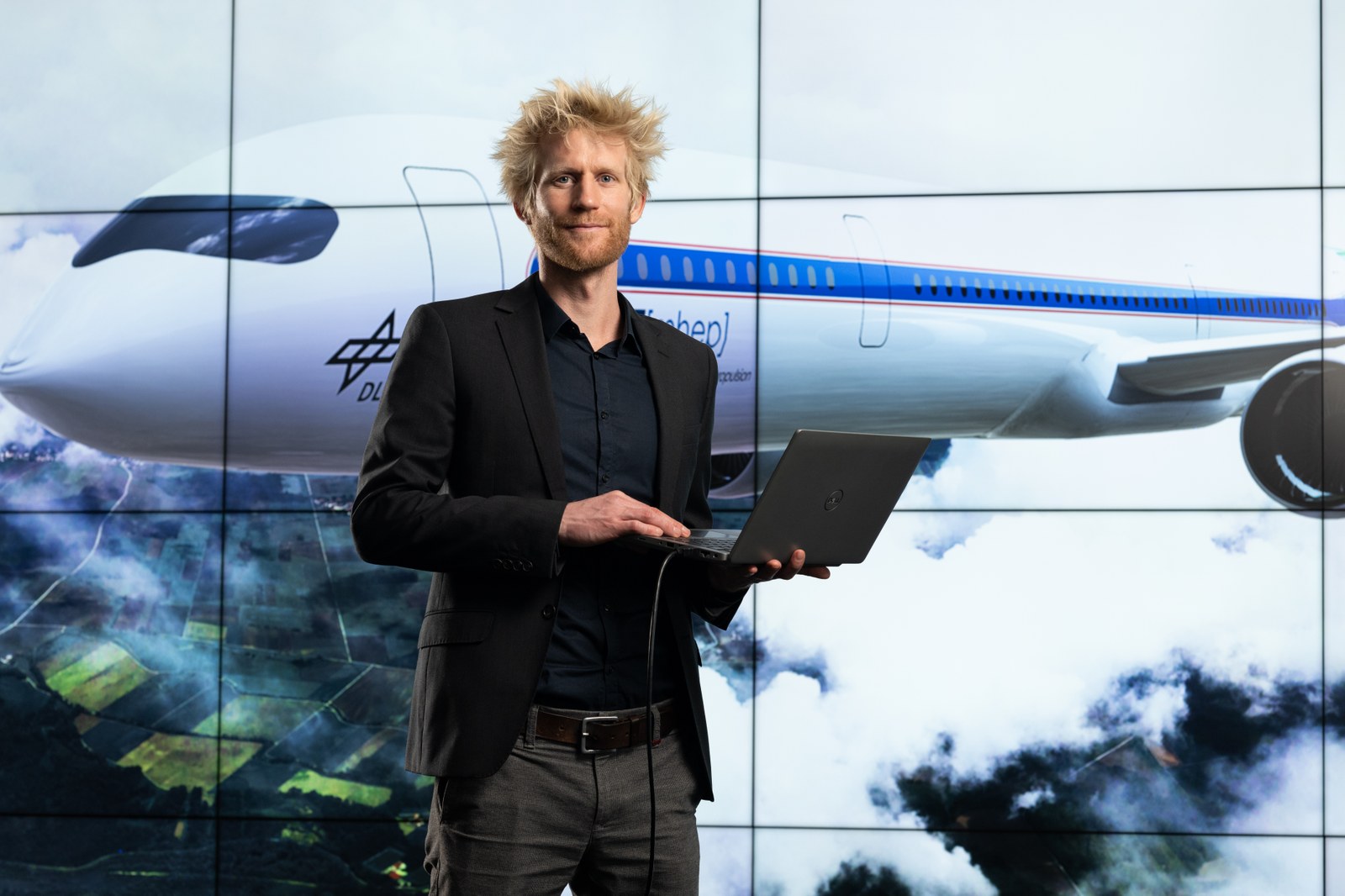
What special skills can you make good use of in your job?
Daniel: In addition to my acquired expertise in overall aircraft design, my ability to consistently contextualise findings within the framework of the overarching research question is a valuable asset. This means I never lose sight of the bigger picture. Striking the right balance between a high level of detail in relevant disciplines and employing practical, simplified approaches is very important. It is the only way to make meaningful progress.
Leave us a final thought.
Daniel: Working at DLR means having a lot of freedom to choose research topics – which is not always possible in the industry, for instance. Other advantages are the flexible working hours and the opportunity to work from home on short notice. The strong trust vested in us at the Institute significantly contributes to a positive working environment.
I find it particularly remarkable that, as part of DLR, you can contribute to research that facilitates sustainable and economically viable advancements in aviation.


